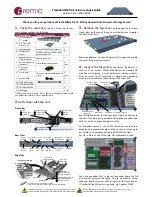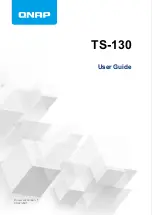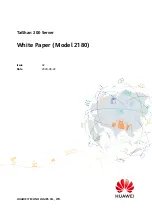
263
PRIMERGY RX100 S3 User’s Guide
9
O
p
eration
a
nd
Mainten
ance
■
Notes on Operating Backups
Notes on operating backups are as follows.
For details, refer to the device manuals.
●
Head Cleaning
Airborne dust and dust from the magnetic media can collect on the head of the magnetic tape device. To
remove this dust, head cleaning must be implemented. Implement head cleaning when the device
displays a cleaning request. Particularly, a DDS device requires periodic head cleaning; otherwise dust
can cling to the magnetic head, creating situations that cannot be solved by standard head cleaning
methods and eventually render the device useless.
Also note that the cleaning media has a limit on how many times it can be used.
Using cleaning media that exceeded its lifespan will have no cleaning effect. Note these points
especially when performing automatic backups with library devices.
●
Managing Media Lifespans
Media is a consumable product that must be replaced regularly.
Continued use of media exceeding its lifespan can have negative effects on the device (e.g. increase the
speed of dust accumulation).
The lifespan of media varies depending on the environment and operation condition of the device, the
type of backup software used, and other operation conditions, however, it is recommended that they be
replaced sooner than later.
To manage the lifespan, write the use start date on the media.
●
Rotating Media
Perform backup operations using multiple mediums on a rotating basis.
When using a single media cartridge repeatedly, backup data can be temporarily lost in the event the
backup fails. Also if the hard disk fails during backup, the backup data cannot be recovered.
●
Avoid Leaving Media in Devices
Because the magnetic recording surface of the device is exposed, media can be easily affected by
airborne dust when left inserted for a long period of time. Insert the media before using it, and remove
the media after use, and restore it in its case.
Also note that some tape devices write management information to the tape when ejecting the media. If
the power were to go out when the media is still in the device, this writing process will not be performed
and the media may become corrupted.
To avoid this, eject the media from the device when turning off the server/device.
●
Verifying Data after a Backup
Some backup software products provide data verification functions after a backup is completed. Such
functions will read and verify the data written to the media after a backup is completed. This will
increase the usage of the media, thus reducing the number of times it can be used for backups.
Depending on the hardware being used, some devices perform "read after write" operations on data; note
the points of this section as necessary.
















































